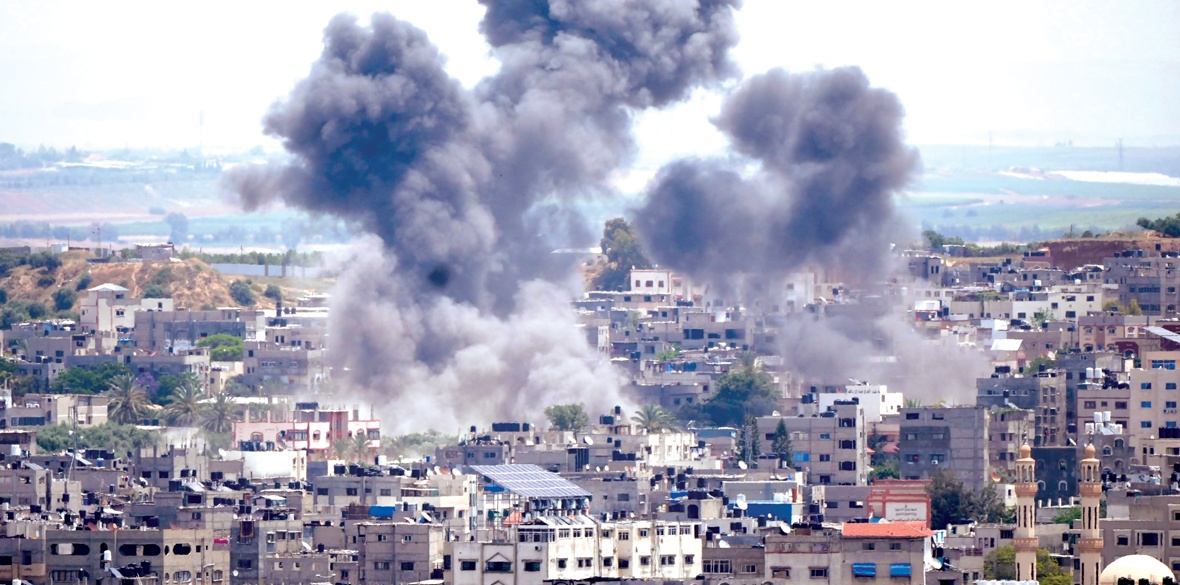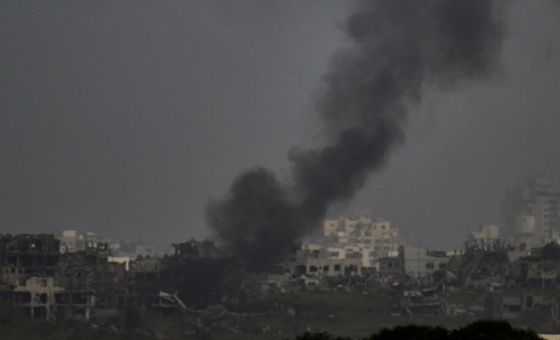This is the last article you can read this month
You can read more article this month
You can read more articles this month
Sorry your limit is up for this month
Reset on:
Please help support the Morning Star by subscribing here
IT IS that time of the year when Palestinians all over the world commemorate another year since their Catastrophe, the Nakba, which hit them in 1948, when a state was created on their land for a people who did not come from the land and when 750,000 indigenous Palestinians were expelled to neighbouring countries.
A peaceful people, that had endured an unwelcome and often violent British occupation under the UN mandate for Palestine awarded in 1920, were once again occupied by another group of foreigners.
During the mandate, the UK worked tirelessly to make good on its shameful promise to assist the zionist movement to create a homeland for Jews in Palestine. The Balfour Declaration in 1917 had complete disregard for the overwhelming existing Palestinian majority who inhabited historic Palestine, not consulting them and referring to them as simply “communities.”
Unlike the inhabitants of Jordan, Syria, Iraq and Lebanon, they were the only inhabitants of an area created by the British and the French under the Sykes-Picot agreement that were not helped to gain independence.
Every year the Palestinians live that painful and catastrophic dispossession again. The refugees and those in the diaspora are still unable to return to their homes due to Israel’s refusal to allow them back, while Israel allows any Jewish person from anywhere in the world to move to historic Palestine, to gain citizenship and to live anywhere they choose — whether in what is now regarded as Israel proper or illegally occupied Palestinian territory.
Around May 15 stories from the Nakba are told by survivors to their relatives and at the same time, the keys to homes they were evicted from are handed down to the next generation to ensure the yearning to return lives on.
When I visited refugee camps in Lebanon, I was struck with the unflinching desire and demand to return. I always remember the question refugees asked when they noticed I was not from the camp — where was I from?
My initial answer, speaking in Arabic, was that I am from Britain. That was not the answer they were looking for, but it was what one famous Palestinian American comedian, Amr Zaher, incorporated into his act. “Where are you from from?” meaning where in Palestine.
When I asked them the natural question about the future, “what do you want to see happen?” it was a unanimous desire to return to the very homes, villages, and cities they or their grandparents were evicted from. Even the accents, while somewhat Lebanese, reflected the accents of the places the refugee elders came from.
What gave me a bit of a status was when I told them I was originally from Jerusalem as both my parents were born there, both before 1948. That invariably brought the wish that they would one day pray at Al-Aqsa mosque in a free Palestine.
What I always find energising is the desire of young Palestinians to return to a free Palestine. An Israeli leader once remarked that the “old will die and the young will forget.”
Yes, the old died and no amount of resistance could have kept them alive until freedom and return, but the young have not forgotten their identity and where they are from — Palestine from the river Jordan to the Mediterranean and from Raas Alnaqura to Um El-rashrash.
The desire to return has seen Palestinians gather as close as they can to their homeland, whether from Lebanon or from the besieged Gaza strip.
A good example of how close that is can be seen with reference to those Gaza residents who originate from the village of Najd, that was ethnically cleansed in 1948 to make way for a Jewish-only settlement that regularly enters the news, Sderot. Those Palestinians who hail from Najd could literally walk back to their lands for which they still have registry papers.
When they tried to do that peacefully on March 30 (Land Day) in 2018, at the start of the March of Return, they were met with terror. Israeli snipers shot at them killing and maiming indiscriminately. More Palestinians were killed in the following year when they made the journey to the fence to return, but Israel denied them that right against international law.
That partly illustrates the continuing Nakba that Palestinians live to this day. Half of the estimated 14 million Palestinians worldwide live in historic Palestine but are not free.
They are either in the occupied West Bank, East Jerusalem or Gaza or are Israeli citizens living as second-class citizens in their homeland due to Israeli policies that discriminate against them and place the rights of Jews above their rights, including the right to self-determination.
My continuing Nakba was brought home to me when my father died in the late 1990s in Birmingham. I did not have the choice of burying him in Jerusalem at the family burial patch near Al-Aqsa mosque. Instead, he was buried in Birmingham, while the notorious British publisher Robert Maxwell was buried in Jerusalem.
As a British citizen, I was able to visit Palestine to see my family in Jerusalem and the West Bank until 2017. Then I was then denied entry due to my advocacy for Palestinian rights and sent back.
Nothing can describe the feeling of sitting at Lud airport (Ben Gurion), being told I would not be allowed in, while seeing my homeland through the window.
I have become a real refugee, no different to those in Lebanon, Jordan or Syria. What right has the illegal occupier to deny Palestinians entry to their homeland and why does Britain allow Israel to discriminate between its citizens when it comes to entering Palestine/Israel?
Being denied entry made me more determined to campaign for Palestinian rights, especially in the home of the Balfour Declaration.
Today I will lead the march to commemorate the 75th anniversary of the Nakba on behalf of the Palestine Solidarity Campaign, together with our five other partners. We will march from BBC Portland Place to 10 Downing Street. Join us to send a strong message to Palestinians that we are on their side in their fight for liberation and return and against Israeli apartheid.
My mother who was born in Jerusalem and lives with me in Birmingham should be able to choose to return to live in her hometown. When that happens, peace will have come to the holy land.










